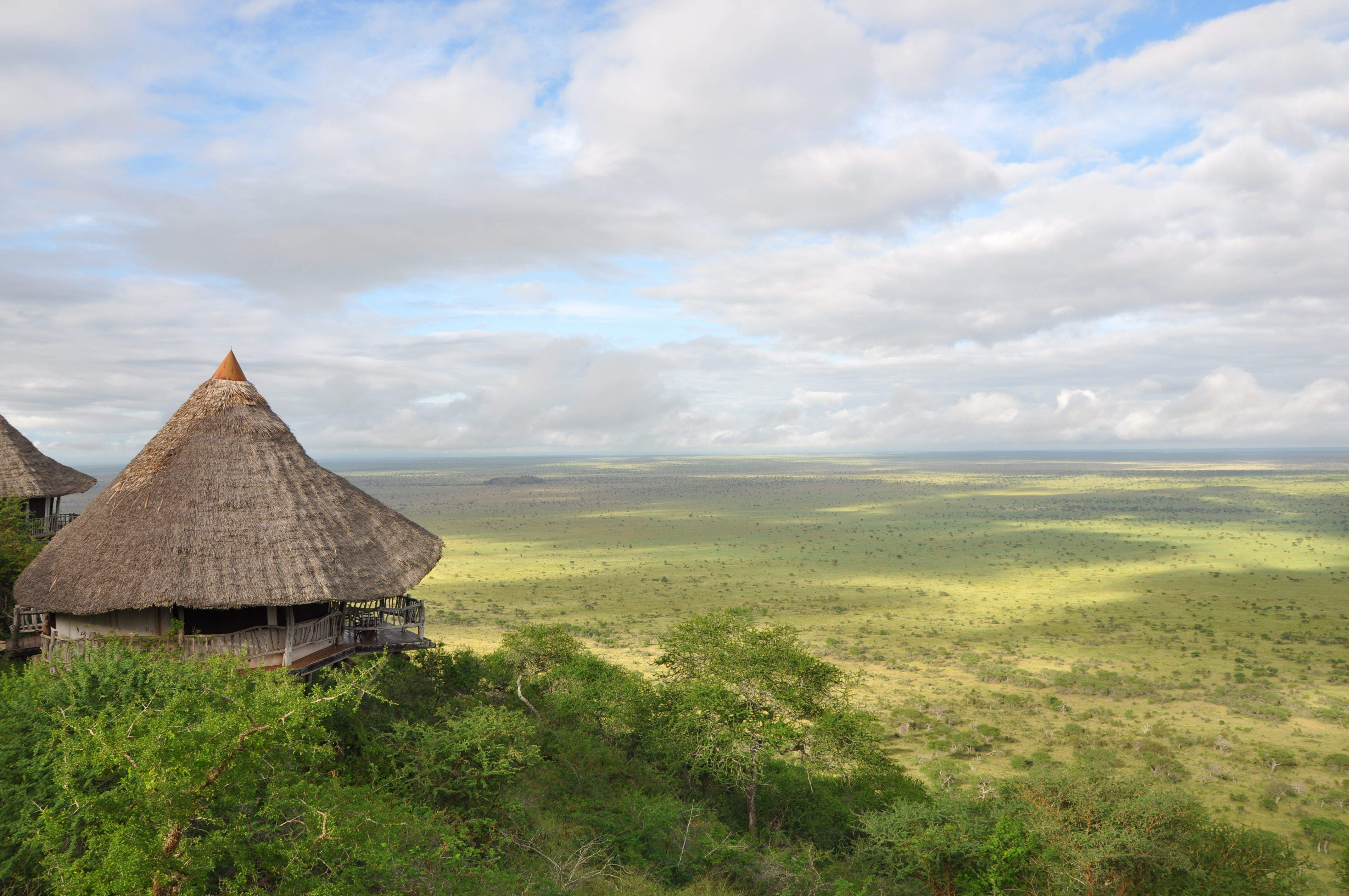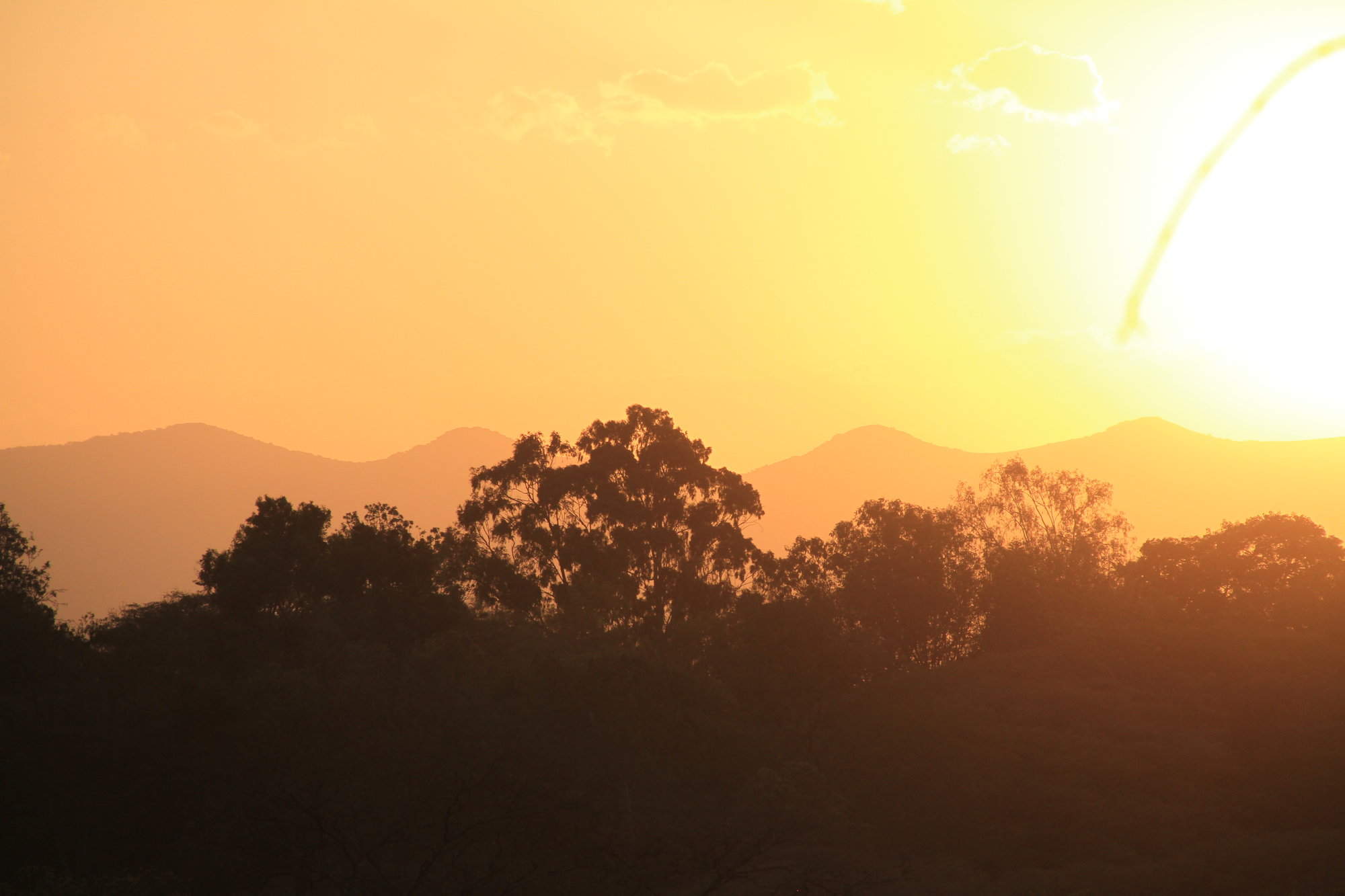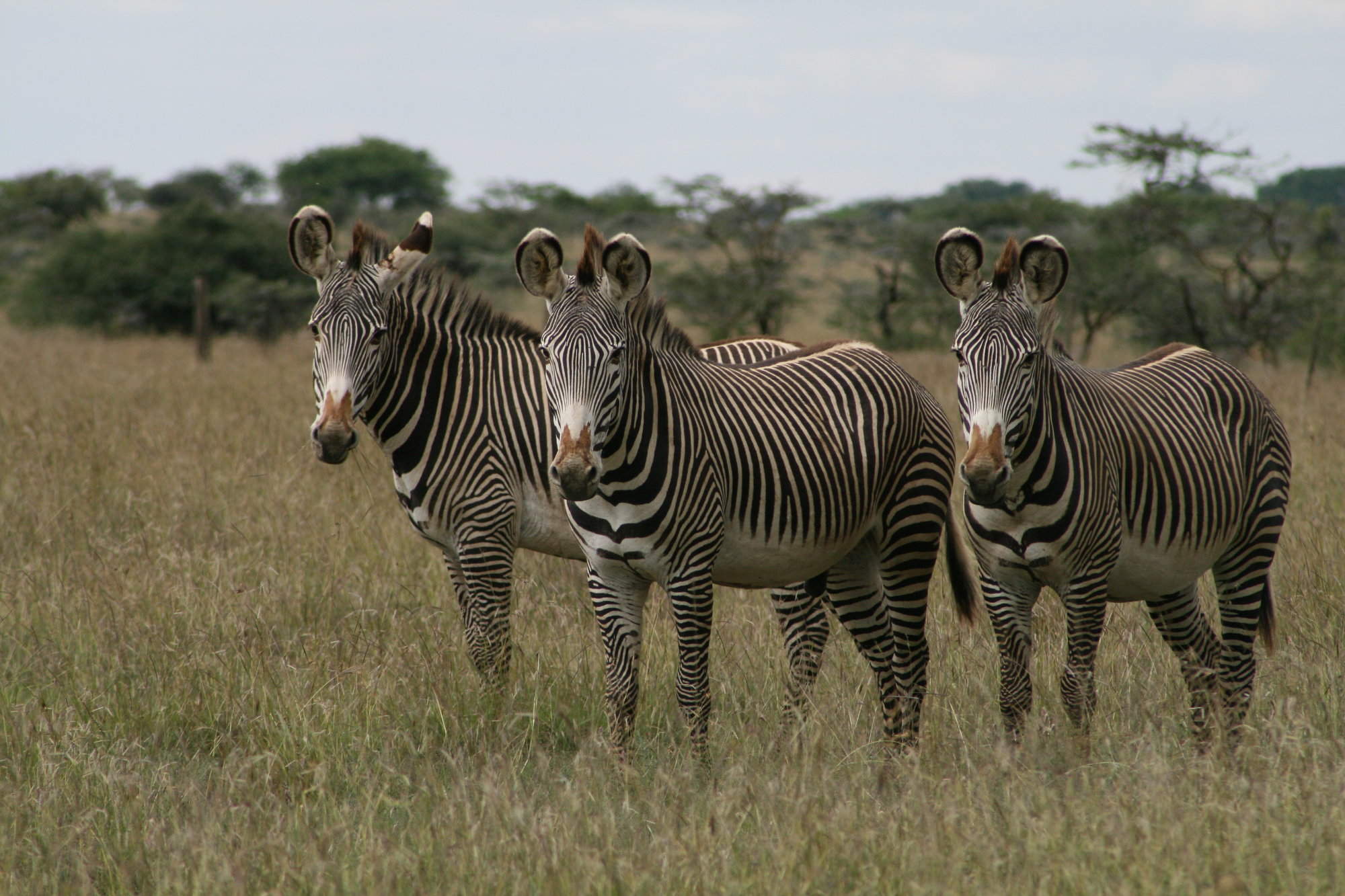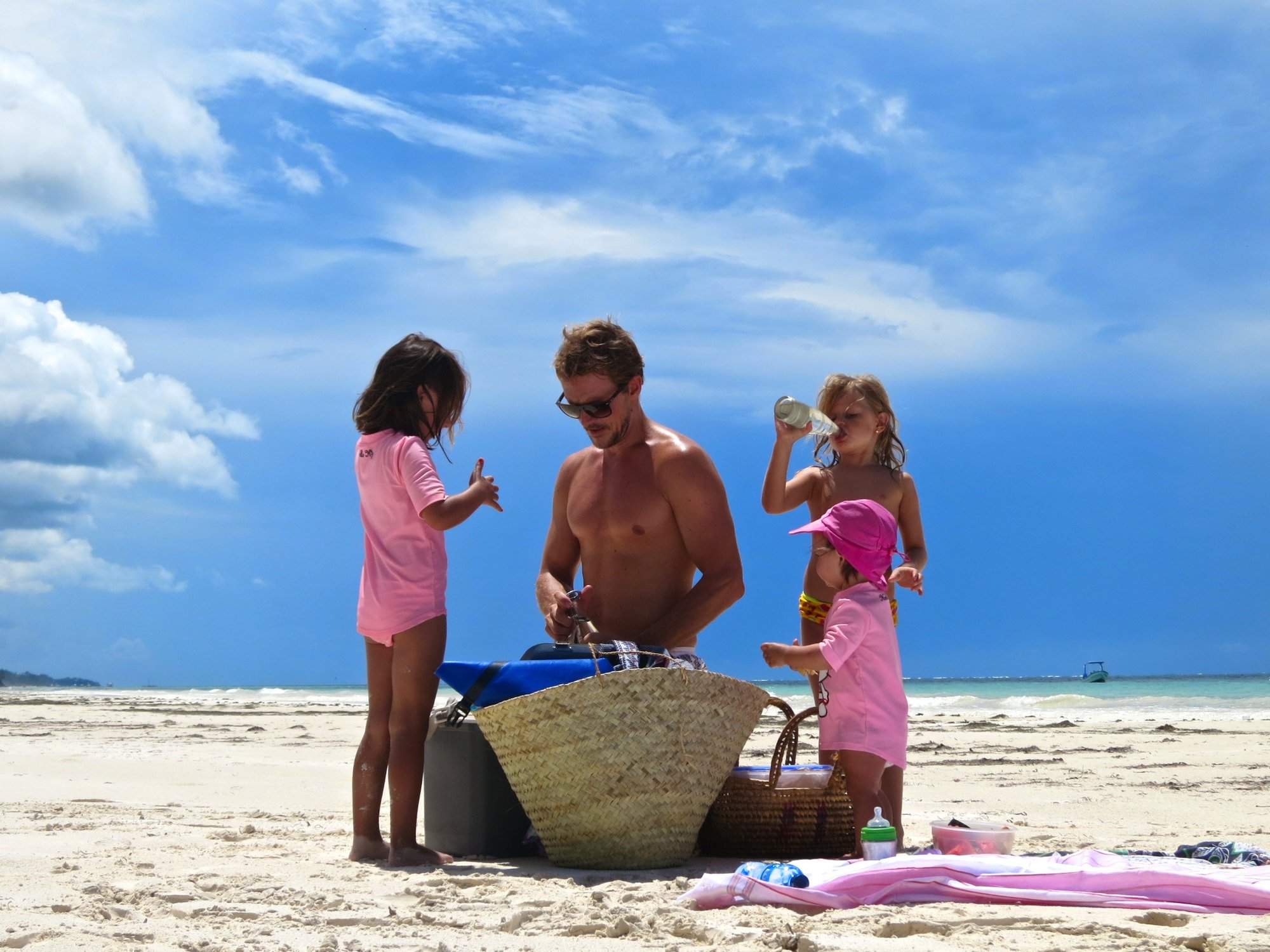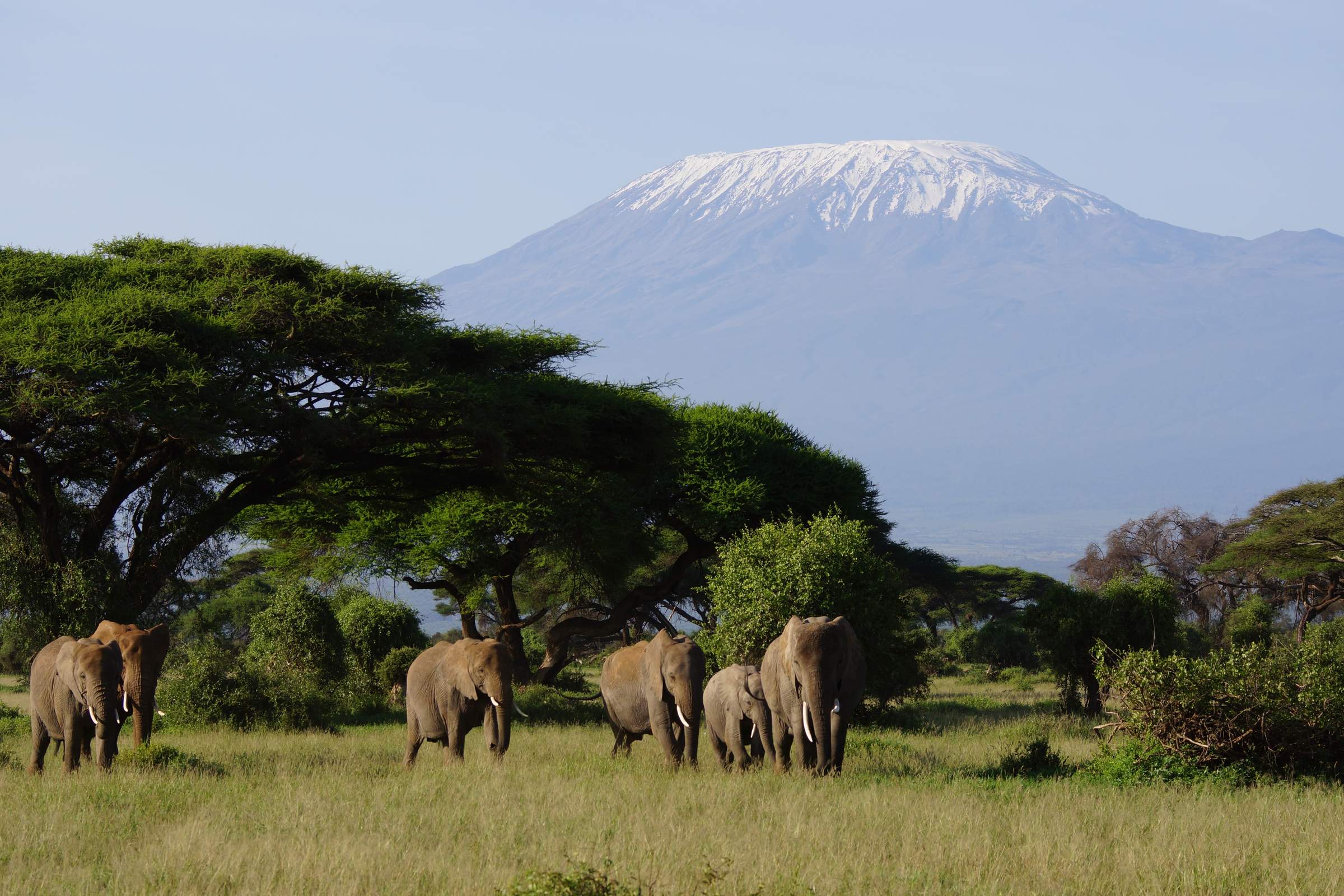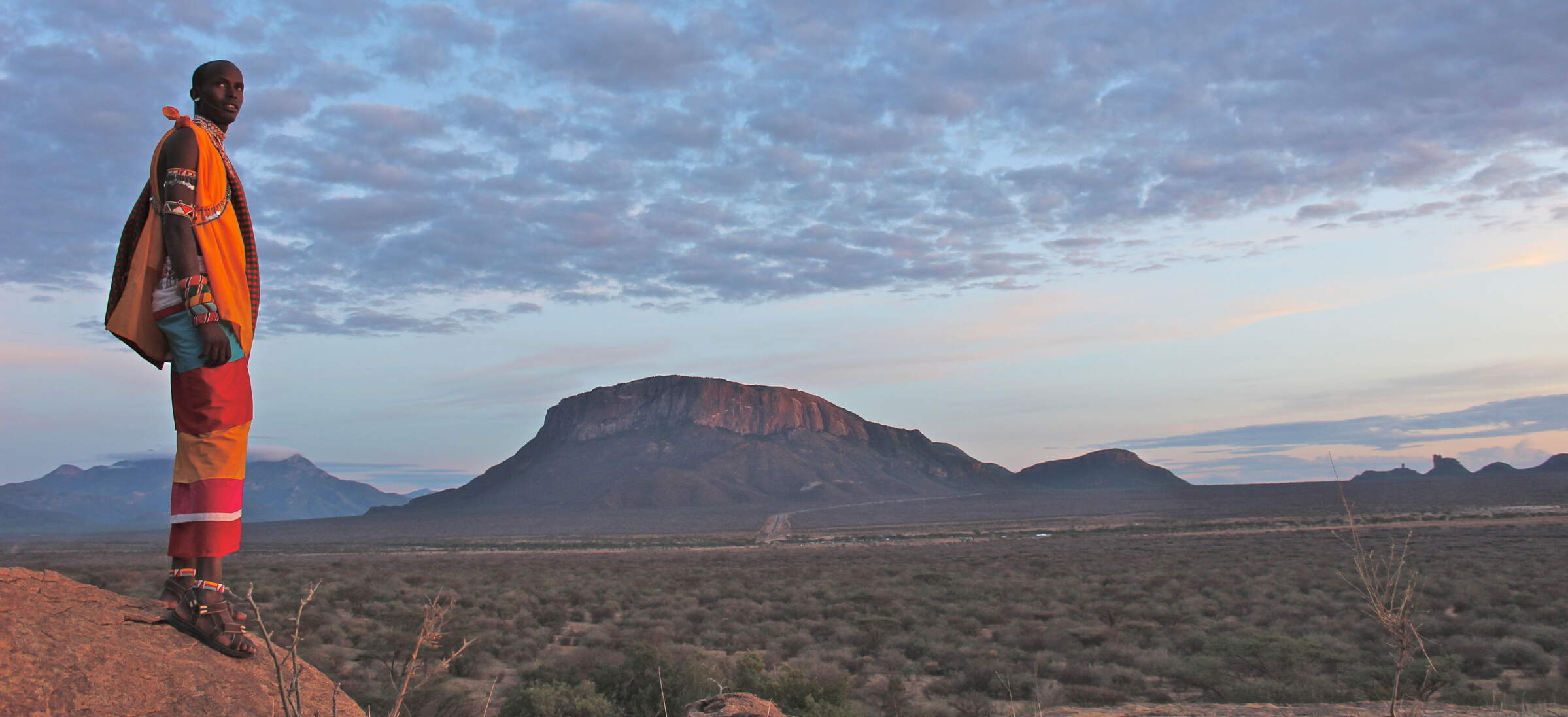Severin Safari Camp: Our full report
Of the limited number of accommodation options in Tsavo West, Severin Safari Camp is one of just three tented ...
... camps and unusual in being built on a flat plain that usually teems with wildlife. German owned, and run with enthusiastic devotion by a German couple, it is very centrally located for Mzima Springs, the Tsavo River and Tsavo West’s spectacular volcanic landscapes. The camp has an Eco-Tourism Kenya Silver Award and our impression is that it’s run on strong eco-tourism principles.The unfenced camp was built alongside an old self-service banda site, Kitani Bandas (which Severin overhauled in 2001 and now manage together with the main lodge). Arriving at the camp, you pull up right outside the reception area and the shop selling local crafts and souvenirs. Straight ahead is the main dining area, bar and lounge terrace (well shaded to cope with the area’s high temperatures), with bar stools, comfy sofas, and views directly into the bush over a number of small waterholes. There’s a firepit nearby, for sundowners or after-dinner drinks.
While most lodges aim for a vantage point to provide guests with a spectacular view of the landscape and wildlife below, Severin stretches out on the flat plain itself, and the animals are all around – and in – the camp. You’re witness to an unending display of warthogs, giraffe, antelope, and birdlife lured by five waterholes. It all makes for a particularly direct and vibrant experience of the bush. On one of our stays, for example, we just missed a lion kill close to reception – the manager put all his guests in the camp vehicles and led them out to watch the meal.
Guests at Severin Camp have the choice of tented accommodation or solidly constructed cottages.
The 21 octagonal tents, with mosquito screens most of the way round, stand on crazy-paved plinths, and are suspended beneath steep, makuti-roofed shelters. Solid-walled, hotel-style bathrooms, with flush toilets, bidets, double washbasins, and white towels and bathrobes, give these facilities a contemporary feel. There are rainfall showers and bathtubs in the tented suites. Water at the lodge comes from a spring, with a pumping station and purification system. It’s fine to drink, but guests are provided with free bottled water anyway.
The bedrooms are furnished simply, but comfortably, with ceiling-to-floor mosquito nets over the beds, and a writing table – though the only seating is canvas directors’ chairs. You can charge batteries in the tents between 5.00am and 11.00pm, when the power is on.
Electricity is provided by two large and two small generators and times can be extended if requested for light or charging batteries. Hot water is supplied by solar panels with power stored in batteries. They also use steam from the generators to heat water (‘water-heating boilers’).
The tents are ranged around an arc about 300m long, facing the waterholes and bush. Your focus might be all on the wildlife, but this does mean the tents are only an average of five to seven metres apart, too close for much privacy. That is one issue that might persuade some people to opt for one of the bandas or tented suites – or a different camp.Two tented ‘Mawenzi’ suites are in the other direction (south) from the main areas and designed for honeymooners and couples who want privacy.
The four solid-construction cottages, on the north side of the arc of tents (and thus furthest away from the main areas) are designed to feel like a seamless part of the camp – but are for people who want a little more privacy or who are uncertain about the prospect of ‘camping’ in the East African savannah. Their bathrooms are similar to those in the tents, but they have rainfall showers and, in addition, they have an outdoor shower, effectively a small, walled courtyard, open to the sky, again with a rainfall shower. Furnishings are similar to those in the tents. Otherwise, the main points of difference between the tents and the cottages – apart from the obviously solid walls and doors – are an extra lounge area with a sofa, tea- and coffee-making facilities, and the recliners and sun awnings on the decks.
The camp conducts game drives using three, open 4x4 safari vehicles (two Land Cruisers and one Land Rover) with three rows of two seats, and a seventh passenger seat at the front.
Although it is in a national park, daytime game drives are not the only activities you can do at Severin. The stand-out feature is the very nice yin-yang swimming pool and the well-equipped ‘Kenbali’ spa, that combines elements of Kenyan tradition with Balinese Hindu massage and therapy.
Unusually, for a national park, the camp runs four-hour bush walks with armed KWS rangers and two-hour night drives with spotlights. Severin has special permission to do the night drives in agreed areas. Likewise, the bush walks set off with a Maasai guide (equipped with snacks, water, first-aid kit, radio and whistle) and an armed KWS ranger. You can walk over the lava flow to Mzima Springs or cross the Tsavo River. For both these special activities, the camp needs a minimum of 24 hours’ notice.
Although you have the whole of Tsavo West National Park’s 7,000km² to explore – if you have time – the park’s top attraction, Mzima Springs, is just 8km from Severin. At the springs, where the car park and nature trail are guarded by rangers, you can watch hippos and crocs disporting themselves in the shallow, crystal-clear waters beneath shady fig trees. There’s an underwater viewing tank here, sunk on the lake floor at the end of a short pier. It’s not uncommon to see the funny, tiptoe paddling of a hippo, or the sinuous, gliding shape of a croc, and you’ll always see the lesser denizens of the springs – hundreds of large fish.
Our view
Severin Safari Camp’s combination of excellent, hands-on management, harmonious design and architecture and a terrific natural environment has produced a winning safari camp that seems to tick every box without making you feel part of a tourism machine, and the bush walks to Mzima Springs are a huge bonus. If we had one bone to pick it would be that the tents and cottages could be spaced further apart for added privacy.
Geographics
- Location
- Tsavo West National Park, Kenya
- Ideal length of stay
- Three to four nights
- Directions
- The transfer to camp takes 15 minutes from Kilaguni airstrip, or 30–45 minutes from Finch Hattons airstrip, depending on game viewing opportunities along the way.
- Accessible by
- Fly-and-Transfer
Food & drink
- Usual board basis
- Full Board & Activities
- Food quality
- Most of Severin Safari Camp’s fruit and vegetables – plus eggs and honey – come from their own organic farm on the coast. Meal service timings are fairly informal, allowing for guests’ individual safari activities, but the overall standard has been high on both occasions we’ve stayed, with a good mixture of plain and simple, and more adventurous dishes (typically three or four choices for each course) and usually some vegetarian offerings.
Breakfast is always a big buffet, with cereal, fruit, pastries, cold cuts and cheese and a cooked breakfast available from the buffet, with eggs cooked to order. Pancakes and waffles are also available.
A typical four-course dinner menu includes starters of: avocado and smoked sailfish timbales, tomato and cucumber salad with sour cream dressing, seafood ragout wrapped in a coriander pancake. There’s a choice of soup, for example carrot and ginger, or a consommé.
The main course might feature a beef fillet with mushrooms, vegetables and sautéed potatoes, or fish in an orange curry with rice and vegetables.
Dinner always includes hot stone, cook-your-own marinated beef and pork, with dipping sauces and side dishes.
Desserts might included banana crumble and custard, panacotta on chunky fruit sauce or a flambéed crème caramel.
Lunch is much simpler, and perhaps a reflection of the heartiness of breakfast and dinner, and is a mix of plated and buffet service. A typical menu includes a green salad with a choice of dressings, minestrone soup, a cold meat platter with cold roast beef and chicken, ham, salami and pickles, a pasta dish, burgers or fish goujons, followed by fruit salad or profiteroles. - Dining style
- Individual Tables
- Dining locations
- Indoor and Outdoor Dining
- Further dining info, including room service
- None, except on special request
- Drinks included
- Not included. Sample prices: local beer 500ml Ksh320 ($4), soda Ksh160 ($2) glass of house wine Ksh320 ($4).
Special interests
- Walking
- It is unusual to be allowed to walk in Kenya’s national parks, but Severin Safari Camp’s four-hour bush-walks enable you to explore Tsavo West National Park with an armed guard. It will need to be booked in advance – ask us for more details.
- See ideas for Walking in Kenya
Children
- Attitude towards children
- ‘No problem, we have lots of children’
- Property’s age restrictions
- None
- Special activities & services
- Early meals can be arranged. There is no baby-sitting or child-minding service.
- Equipment
- Two cots, two highchairs.
- Generally recommended for children
- We would recommend Severin to families with children over the age of about seven.
- Notes
- Children will need to be old enough to understand the limits on where they can wander in an unfenced camp. Parents should also be aware that Severin has a large pool, and always keep children under close supervision.
Our travellers’ wildlife sightings from Severin Safari Camp
Since mid-2018, many of our travellers who stayed at Severin Safari Camp have kindly recorded their wildlife sightings and shared them with us. The results are below. Click an animal to see more, and here to see more on our methodology.

100% success

100% success

100% success

100% success

100% success

80% success

80% success

60% success

40% success

33% success

20% success

20% success

0% success

0% success

0% success

0% success

0% success
Communications
- Communications
- There is Safaricom cellphone network in this part of Tsavo West, and WiFi is available throughout camp.
- TV & radio
- There is a TV in the staff canteen, which is available on request.
Sustainability
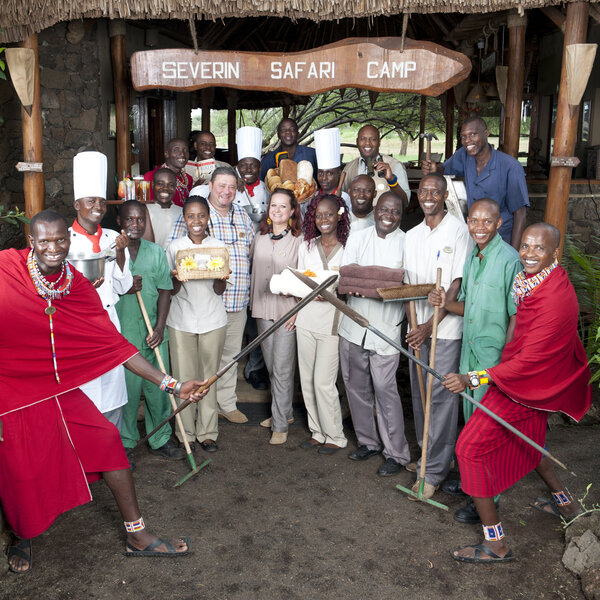
Going green by reducing water consumption
To protect the fragile environment of the 7,065km² Tsavo West National Park in which it operates, Severin Safari Camp has developed a programme guided by the principles of ecotourism. A big contribution to the eco-friendliness of the park is made by the way it manages the water used in running its daily operations.
Fresh water is brought to Severin Camp using its own pipeline coming directly from Mzima Springs. The water is stored in reservoir tanks with a capacity of 100,000 litres and then treated, through the chlorination and filtration system, before supplying the entire camp. Hot water is obtained using solar energy and heat recovery of the power generators. Moreover, the showers in guest tents are fitted with tap flow reducers to increase water use efficiency. In terms of waste water management, Severin Safari Camp possesses a treatment plant which cleans all the waste water from the tents and the kitchen, which then gets re-used for watering the lawns.
Guests are educated about the importance of environmental protection during a "Back of the House" tours. Moreover, on arrival, each guest is made aware about the importance of water conservation and is encouraged to re-use their towels to help conserve water.
For having passed numerous quality standards, Severin Safari Camp has won the Gold TravelLife Award for sustainability in tourism, and in 2016 was awarded with the Tripadvisor Certificate for excellent service.
See more great sustainability projects in Kenya
Health & safety
- Malarial protection recommended
- Yes
- Medical care
- First-aid training has taken place for 15 staff, and is updated every three months. There’s a first-aid kit in camp. Kilaguni clinic is 15 minutes’ drive away. In an emergency, the flying doctors can land at Kilaguni airstrip, less than 15 minutes’ drive from camp.
- Dangerous animals
- High Risk
- Security measures
- Maasai askaris are on duty day and night, and escort guests around camp during the hours of darkness.
- Fire safety
- Every tent has a fire extinguisher. Every corner of the dining area has one too, plus other areas. Fire alarms are installed and fire drills take place every three months for all staff.
Activities
4WD Safari
Birdwatching
Guided walking safari
Private activities
Extras
- Disabled access
- On Request
- Laundry facilities
- Full Laundry Service - Extra Charge
- Money
- There are small safe boxes in the guest tents and suites, and a larger one in office.
- Accepted payment on location
- Cash payments may be made in US dollars, euros, pounds sterling or Kenyan shillings. Visa, MasterCard and Amex cards are accepted with no surcharge.
Other lodges in Tsavo West National Park
Alternative places to stay in this same area.






